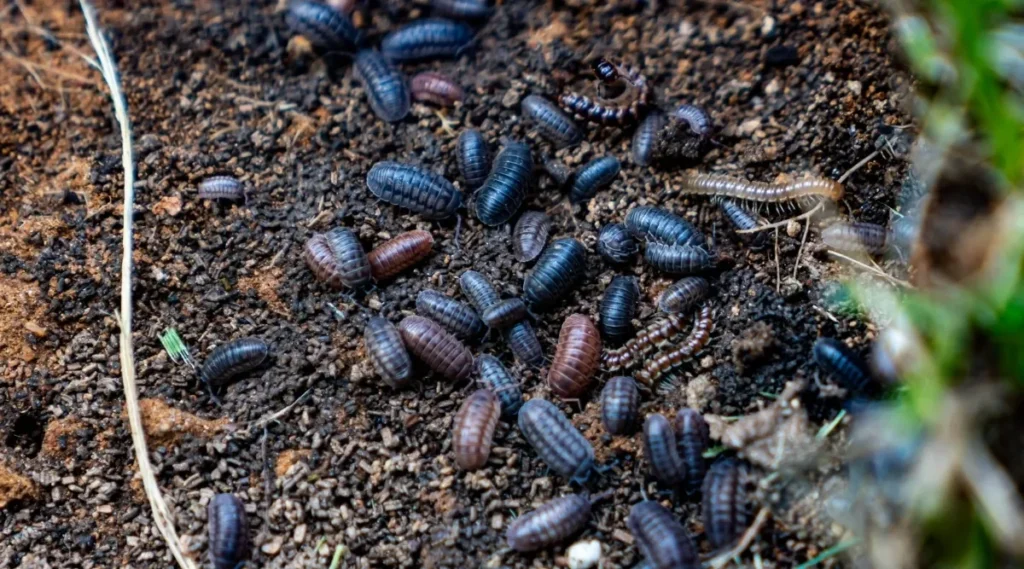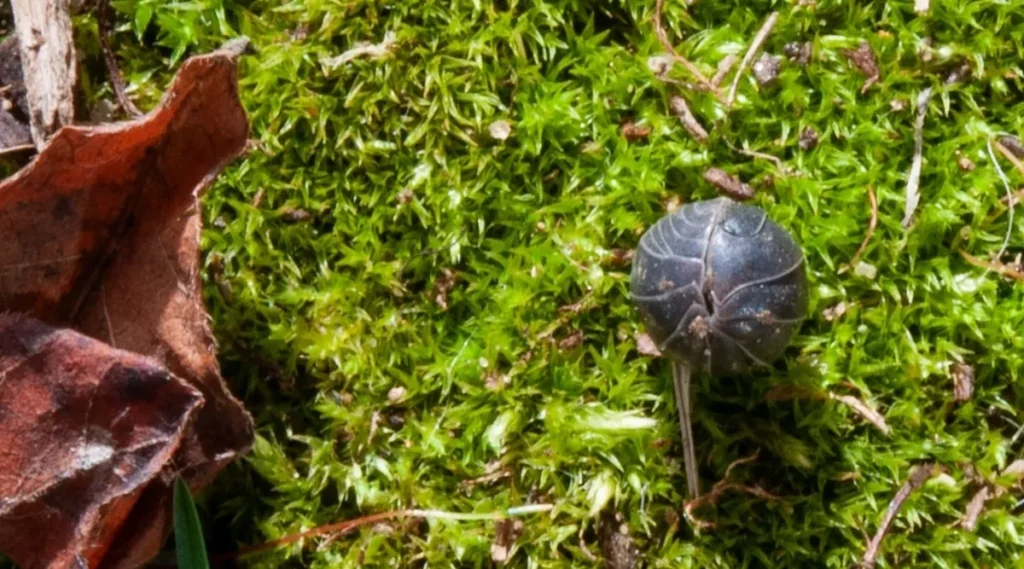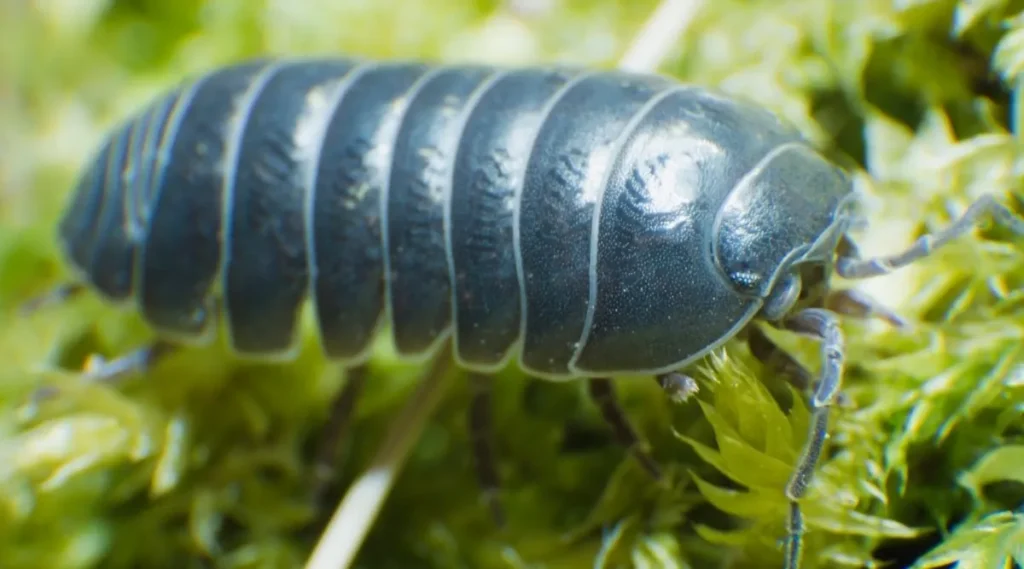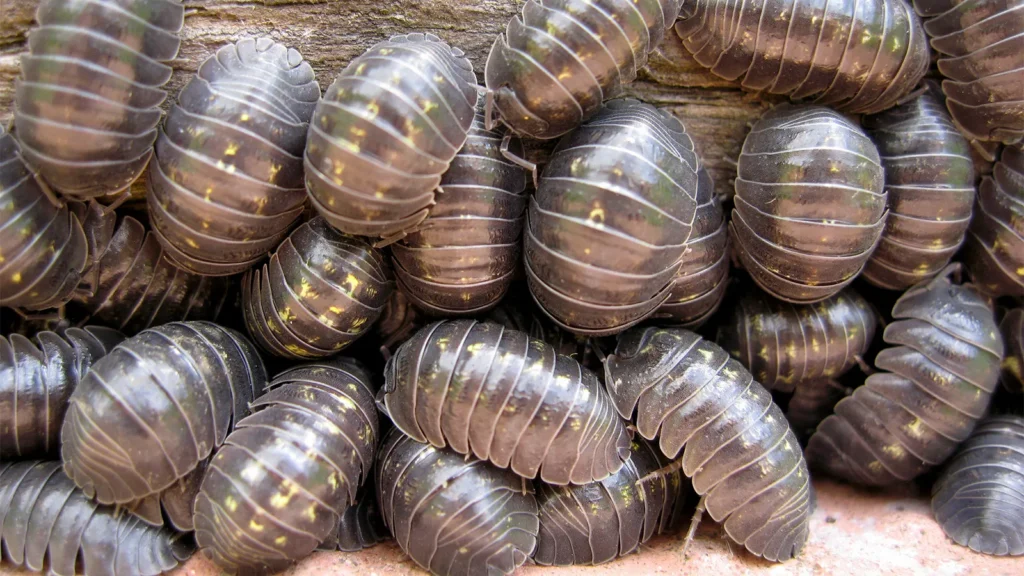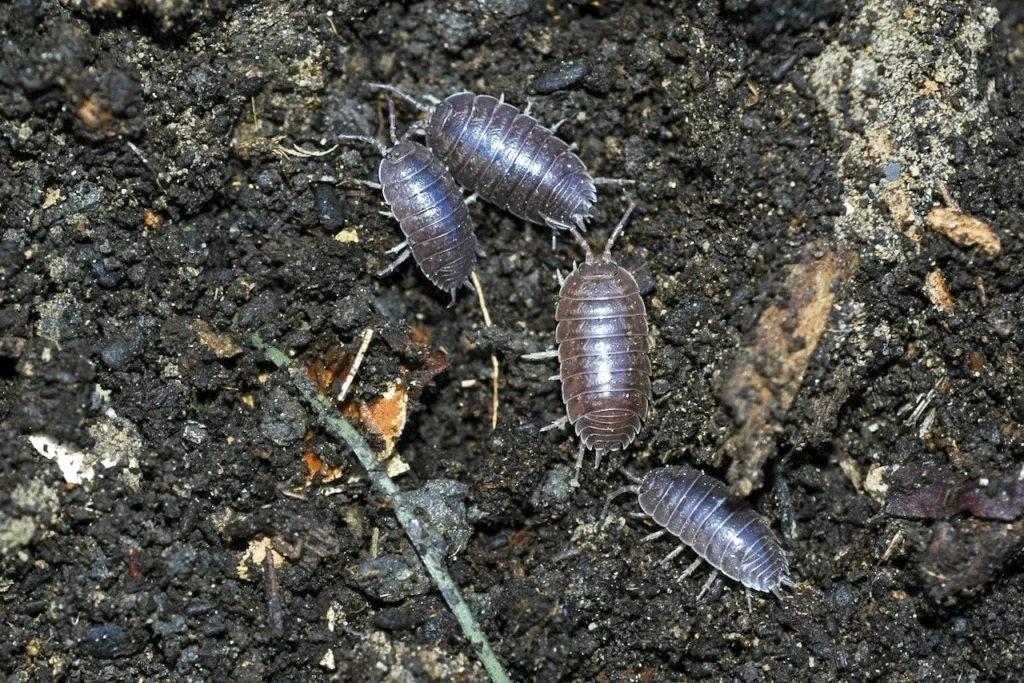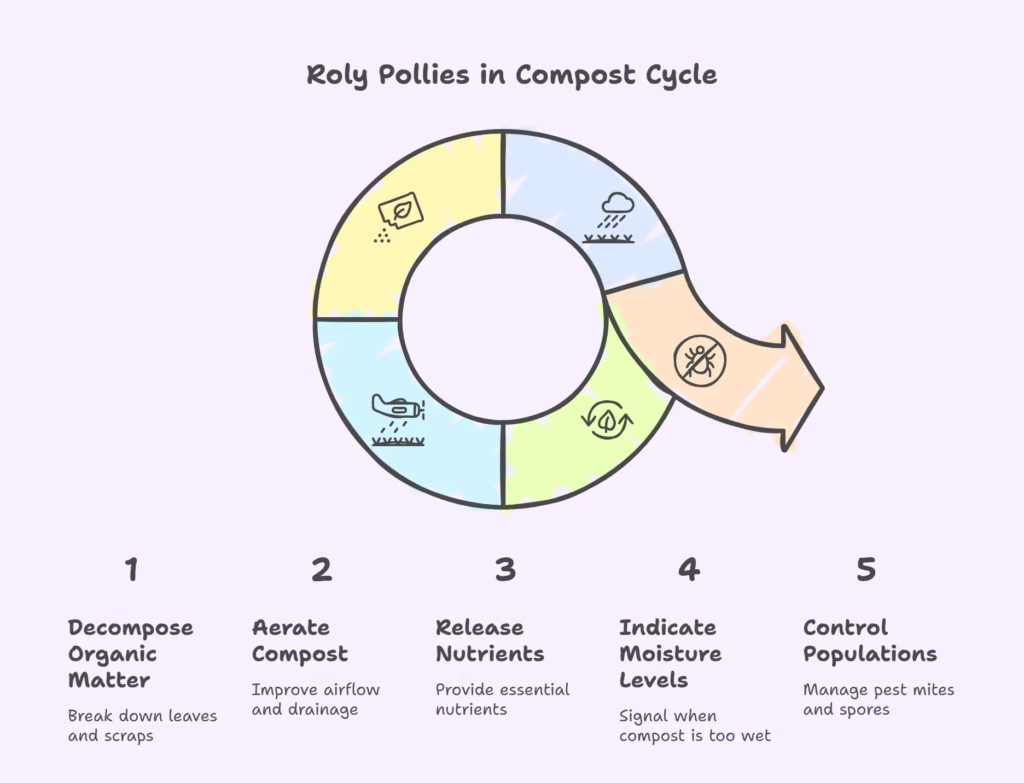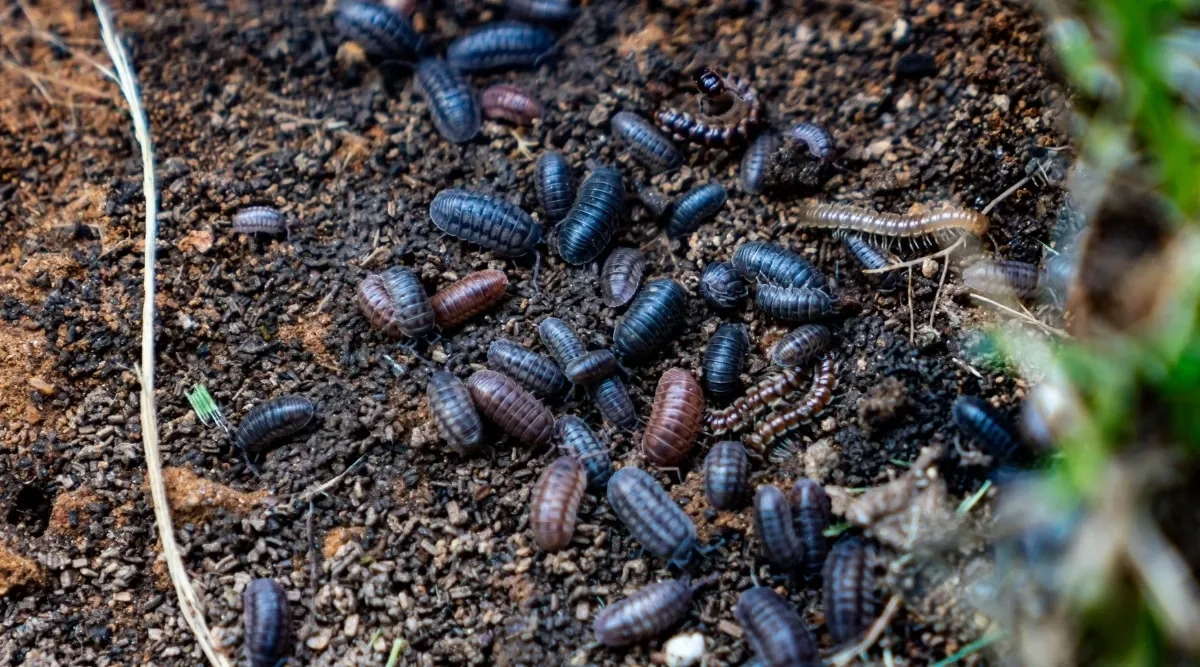
Are Rolly Pollies Good for Compost? Benefits & Management
Composting is a popular method used to turn food scraps and organic matter into nutrient-rich soil. One question that often arises when it comes to composting is whether rolly pollies are good for compost.
These small, armadillo-like creatures are often found in moist environments. They are known for their ability to roll up into a tight ball when threatened. But are they beneficial to the composting process?
Yes, rolly pollies are very beneficial for your plant. So, it is always good to have them in your compost.
However, you must be here because you are confused about them. If so, please check out the following details: You will definitely get your answers.
Are Rolly Pollies Good for Compost?
Rolly pollies are not only harmless to humans, but they also play a beneficial role in the composting process. These tiny creatures are considered decomposers, which means they help break down organic matter into its basic components.
Here are some facts that will make things clear to you about how roly pollies are beneficial for your compost and, finally, for your plants.
1. Work as Decomposers
Rolly pollies usually feed on dead organic matter like leaves, grass, and vegetable scraps. As they eat, they break down the material into smaller pieces, helping to speed up the composting process.
2. Create Channels
As they move through the compost pile, rolly polly create channels and air pockets that improve the flow of oxygen and water, which are essential for the growth of beneficial bacteria and fungi.
3. Add Nutrients
When rolly polly digest the organic matter in the compost, they release nutrients like nitrogen, phosphorus, and potassium back into the soil, which can be beneficial for plant growth.
4. Help Control Pests
Rolly polly also eats other decomposers, like mites and fungal spores, that can be harmful to the compost pile. Controlling these pests, help to maintain a healthy balance of microorganisms in the compost.
5. Indicate Good Conditions
Usually, rolly polly prefers moist, dark environments with plenty of organic matter. If you see a lot of roly polly in your compost pile, it’s a good sign that the conditions are favorable for composting.
So, as a whole, rolly pollies are good for compost like Black Kow and Miracle grow. And ultimately they do a lot of good for your plants.
Now the question is when rolly pollies are dangerous for your plants. The following section will tell you all about it.
When Are Rollie Pollies Bad for Plants?
I am not saying that rolly pollies are always good indeed. There are some ways, it can be dangerous as well.
You must be wondering how this beneficial insect can be a treat, right? Well, they do, especially when the number is too high.
Check out the following facts, and you’ll learn when you need to get rid of the rolly pollies in the compost.
1. Overpopulation
Just as I said before, the number of rolly pollies can be a threat. If roly pollies are allowed to multiply unchecked in indoor environments like basements or crawl spaces, they can become a nuisance due to their sheer numbers.
2. Garden Damage
While roly pollies can be beneficial to garden soil, they can also damage young seedlings and plants by feeding on their roots or tender leaves.
3. Moisture Issues
Roly pollies are attracted to moist environments and can be an indicator of excessive moisture in indoor spaces like basements. If moisture levels are not controlled, mold and mildew can develop, which can be harmful to human health.
So, if you are facing a similar case, you must get rid of them.
How to Get Rid of Rolly Pollies
To get rid of rolly pollies, you can follow the tips below.
- Expose the compost to more light and air to make the environment less conducive for them to live.
- Try turning the pile more frequently to help dry it out, or adding more dry materials like leaves or newspaper.
- Introduce natural predators, such as ground beetles, centipedes, or spiders, to your compost pile. These insects will feed on rolly polly and help control their population.
- If all else fails, you can try removing them manually with a scoop or shovel. Be sure to wear gloves and handle them gently as they are living organisms.
- To get rid of excessive rolly pollies in the compost, you can use an insecticide-containing pyrethrin.
It’s important to remember that rolly polly are part of the natural decomposition process and play an important role in breaking down organic matter. Therefore, completely eliminating them may not be the best approach, but rather reducing their population to a manageable level.
Benefits of Pill Bugs (Rolly Pollies) and Sowbugs in Compost
When you spot pill bugs or sowbugs also called isopods in your compost pile, know you’ve got natural allies at work. These compost pile bugs act as miniature decomposers, shredding fallen leaves, vegetable scraps, and other deca’ying plant matter into finer particles.
That physical breakdown speeds up microbial action, so your pile heats faster and breaks down more uniformly. As they tunnel, they create tiny channels that boost soil aeration and water infiltration, helping beneficial bacteria and fungi flourish.
Beyond aeration, roly pollies contribute directly to nutrient recycling. As they digest organic material, they excrete nitrogen, phosphorus, and potassium back into the compost. These macronutrients are critical for robust plant growth once your compost hits the garden bed. Unlike earthworms, sowbugs tolerate slightly drier, cooler pockets of the pile, ensuring decomposition continues throughout variable conditions.
Include a mix of compost critters, earthworms, millipedes, and pill bugs to maintain balance. When you diversify your decomposer community, each critter tackles different waste types, from woody stems to soft kitchen scraps. Embrace these little crustaceans: they work alongside worms to create richer, more fertile humus that ultimately nourishes your soil.
Are Rolly Pollies Good for Compost – Roles, Benefits & Management Tips
A concise table summarizing rolly pollies’ (pill bugs’) key roles, benefits, and simple management tips:
| Role | Benefit | Quick Management Tip |
| Decomposer | Break down dead leaves and veggie scraps, speeding up composting | Encourage a mix of decomposers (worms, isopods) |
| Aeration Agent | Tunnel through the pile, improving airflow and drainage for microbes | Turn your compost weekly to spread critters and air |
| Nutrient Releaser | Release essential nutrients (nitrogen, phosphorus, potassium) | Watch their numbers; balance with carbon-rich “browns” |
| Moisture Indicator | Thrive in damp conditions, signaling when the pile is too wet | Add dry materials (leaves, straw) and mix regularly |
| Population Controller | Help keep pest mites and fungal spores in check | Introduce natural predators or relocate surplus bugs |
FAQs
Q: Can rolly pollies survive in a compost bin?
A: Yes, rolly pollies can survive in a compost bin as long as the environment is moist and has plenty of organic matter for them to eat. They are often found in outdoor compost piles, but they can also thrive in indoor compost bins.
Q: Will rolly pollies harm my compost?
A: No, rolly pollies will not harm your compost. In fact, they can help speed up the composting process by breaking down organic matter. However, if you notice an infestation of rolly pollies or pill bugs in your compost, it may be a sign that the environment is too moist, and you may need to adjust the moisture levels.
Q: Are rolly pollies attracted to certain types of food scraps?
A: Rolly pollies are attracted to moist environments and organic matter, including food scraps. However, they tend to prefer dead plant material, such as leaves and twigs, over fresh food scraps.
Q: How do I control a rolly polly infestation in my compost?
A: If you notice an infestation of rolly pollies in your compost, it may be a sign that the environment is too moist. To control the infestation, you can try adding more dry materials, such as leaves or shredded paper, to the compost to balance the moisture levels.
Additionally, you can try turning the compost pile more frequently to expose the rolly pollies to the dry outer layer of the pile.
Q. How often can I use diluted urine in compost?
A. Urine is a source of nitrogen but should be applied judiciously. Aim for every 10-14 days and always follow with a layer of dry “brown” materials (like leaves or shredded paper) to balance moisture and prevent odors. Overuse can lead to ammonia buildup.
Wrapping Up
For sure, rolly pollies are not only harmless to humans but also beneficial to the composting process. As decomposers, they help break down organic matter and speed up the composting process.
While a rolly polly infestation may be a sign of a too-moist environment, there are simple steps that can be taken to control the infestation and maintain a healthy compost pile.
So the next time you see a rolly polly in your compost, rest assured that they are doing their part to help create nutrient-rich soil for your garden. Happy gardening.
borshon96
Recommended

9 Effective Tips for Balcony Gardens for Beginners

Best Homemade Fertilizer: Banana Peel for Plants


Philodendron Neon Heartleaf: Your Most Obedient Houseplant


